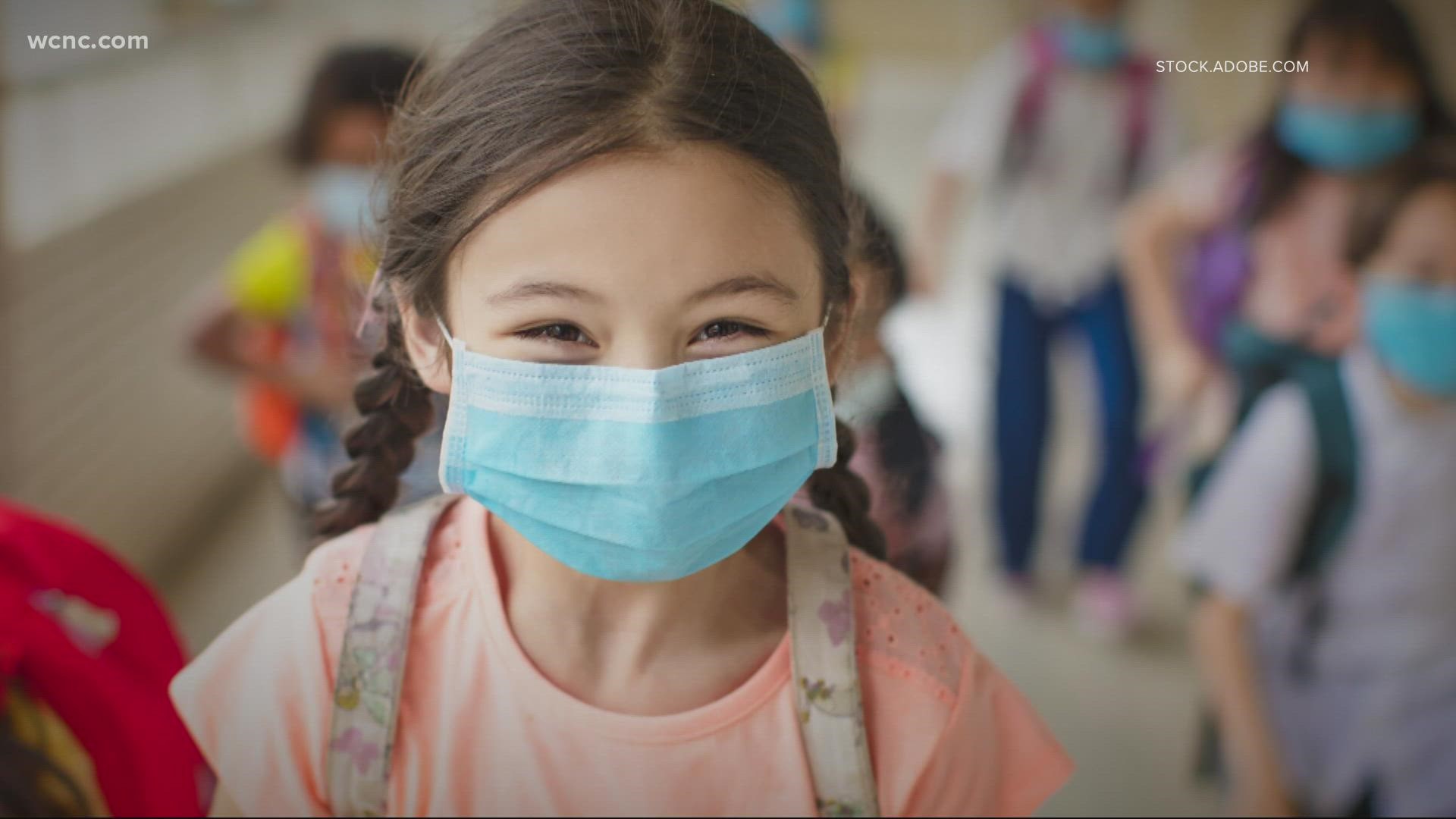CHARLOTTE, N.C. — As some school districts, like Lincoln County, move to mask optional, Charlotte-Mecklenburg Schools will keep masks in place with all students and staff being required to wear face coverings while indoors.
However, some parents claim that masks are not working against COVID-19.
“COVID is not a threat to our children," Nicole Rega said. "You know what is a threat to every single child right now? Your extreme COVID mandates for masks, vaccines and illegal quarantines."
THE QUESTION
Do masks cause more harm than good against COVID-19 for children?
OUR SOURCES
THE ANSWER
No, for children, masks do not do more harm than good when it comes to the fight against COVID-19. It is possible that a mask will make children susceptible to other illnesses, but that's very rare.
WHAT WE FOUND
According to the CDC, cloth masks can block large droplets but can also even block particles smaller than 10 microns.
"I will say that there is no question that we have learned from hard science that masking significantly reduces the risk of you giving COVID to someone else," Bregier said. "It also protects you, similarly, from getting it from someone else. So it helps everyone who is wearing them. Wearing the masks protects you and it protects other people around you."
But can wearing masks cause other problems for children?
"Getting an infection, like a staph infection or some of the other bacteria is possible, but it's fairly rare," Geier said.
There have also been concerns about masks raising the carbon dioxide level in the air kids breathe. According to the CDC, carbon dioxide escapes into the air through masks when kids breathe out or talk. The molecules are small enough to easily pass through mask material.
According to the CDC in contrast, the respiratory droplets that carry the virus that causes COVID-19 are much larger than carbon dioxide.
According to the latest numbers from the CMS COVID-19 dashboard, less than 1% of students were positive with COVID-19. Less than 1% of staff members were also positive for the virus.
Contact Meghan Bragg at mbragg@wcnc.com and follow her on Facebook, Twitter and Instagram.
VERIFY is dedicated to helping the public distinguish between true and false information. The VERIFY team, with help from questions submitted by the audience, tracks the spread of stories or claims that need clarification or correction. Have something you want VERIFIED? Text us at 704-329-3600 or visit /verify.

